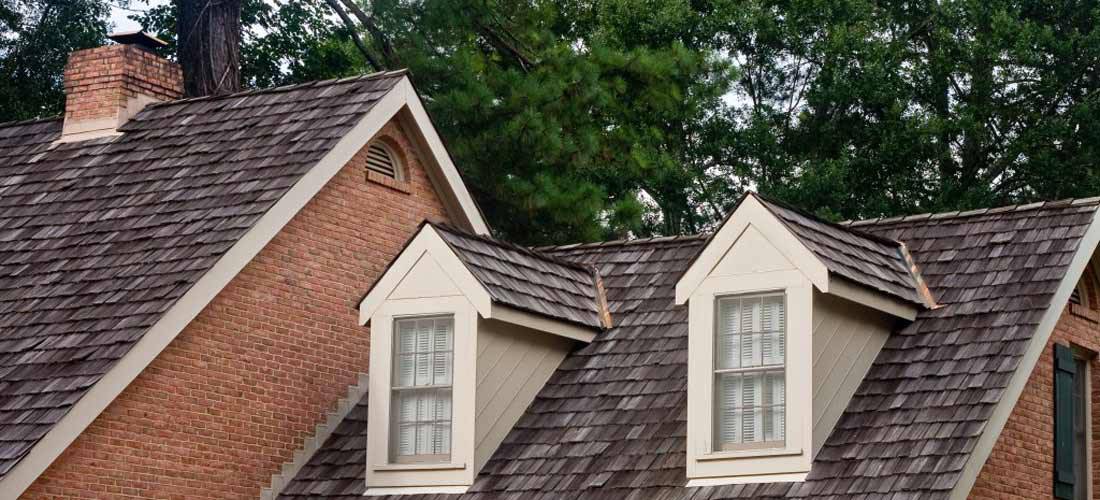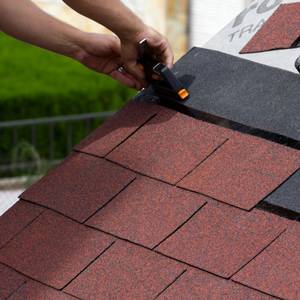A guide to selecting the right asphalt shingles to resist against hail and other heavy impact.
Asphalt shingle roofing is an affordable alternative to more expensive types of shingles. This shingle comes in a variety of styles, making it easy to give your roof a new look. Homeowners should also consider the impact resistance of the shingles they purchase, as hail, pounding rain and other types of inclement weather can damage shingles with poor resistance. Increase the lifespan of your new roof by researching each type of shingle thoroughly before making a purchase.

Impact-resistant shingles typically have a fiberglass backing, which makes them better able to resist the impact of hail, high winds, heavy rain, sleet and snow. These fiberglass shingles are typically coated with asphalt to make them waterproof.
They also have the following benefits:
- Better resistance to fire damage than shingles made with organic fibers
- Insurance discounts available, depending on the impact rating
 Damaged shingles are typically constructed of waste paper that has been saturated with asphalt. The manufacturer coats the shingles with adhesive asphalt and adds ceramic granules, which may contain substances that discourage discoloration caused by the growth of algae on a roof. These shingles contain more asphalt than fiberglass shingles do, but the high paper content makes them more vulnerable to damage caused by fire. Older versions of these organic shingles are more resistant to high winds, as they are very durable.
Damaged shingles are typically constructed of waste paper that has been saturated with asphalt. The manufacturer coats the shingles with adhesive asphalt and adds ceramic granules, which may contain substances that discourage discoloration caused by the growth of algae on a roof. These shingles contain more asphalt than fiberglass shingles do, but the high paper content makes them more vulnerable to damage caused by fire. Older versions of these organic shingles are more resistant to high winds, as they are very durable.
Laminated architectural shingles are a type of asphalt-coated fiberglass shingle. These shingles are heavier and more resistant to impact than other types of shingles, as they consist of two layers that are bonded together with a sealant. The increased heaviness and durability of these shingles make them more expensive than three-tab shingles and other types of asphalt shingles. Some laminated architectural shingles contain an additive that makes them more resistant to hail damage and cracking caused by the expansion and contraction of roofing materials in hot climates. Check with the manufacturer to find out about the warranty offered with this type of shingle.
UL Standard 2218 addresses the impact resistance of roofing shingles. Under this standard, shingles are assigned a rating of one through four. Class 4 is the best impact rating possible. Shingles with this rating are heavy and are able to resist impact better than shingles with lower ratings. Insurance companies may also give homeowners a discount if they use these shingles when building a home or replacing an existing roof.
The type of shingle you select will have an effect on your overall roofing cost, so it is important to ask for a roofing estimate before beginning any building or repair project. Because proper installation of new shingles prevents leaks and other types of damage, you should find a reliable contractor to do this type of work. QualitySmith can help you find a local contractor who knows how to install roofing properly.
Whether you choose fiberglass shingles or organic shingles, putting new shingles on a roof can increase the value of a home and give it a more attractive appearance. Be sure to consider the impact resistance when shopping for asphalt shingle roofing, especially if you live in an area that gets a lot of heavy rain or hail storms.












Write a Comment